Posts Tagged ‘student loans’


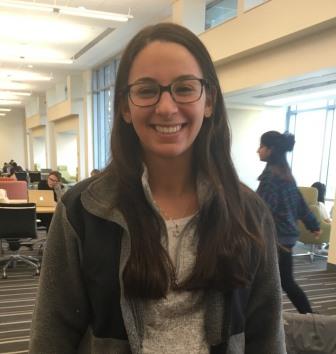
My dad takes care of the FAFSA for financial aid. He takes out the Parent-Plus Loan, as well. So, it’s all just basically financial aid and loans. My dad lost his job when I was in high school and he was still paying off my older sister’s undergrad. And I have a twin, so they’re paying college tuition for three people at this point.
When he lost his job, it (the expenses) fell onto my mom. It was hard to figure out where I wanted to go because I couldn’t afford to go to a private school. Now my dad’s a real estate agent and my mom still has her job. If it wasn’t for loans, I wouldn’t be able to go to college. My car was bought with a loan, too. My car was paid for through a loan that my mom is still working off. My car was $20,000 and I was wondering, “Mom, why did you let me buy this?” But, she’s already paid off half of it. I love my mom, she works so hard. I pay for my own gas and I have a job. My rent and bills are paid through the loans because you can put off-campus housing on it. I can’t afford luxury items, though. Like, I need a new laptop, but I can’t buy one. I’ve had to be smart and budget.



I’ve paid for college by working and getting loans because I don’t get any assistance from the government. I take 17 credits and work almost 40 hours per week at a bar. A lot of the times, I work double shifts. This has affected my schooling a lot. I’ve missed school because I was so tired. It has been just depressing, generally.
I’ve never bought textbooks for school, either, and this is my senior year. I would ask my parents to help me out with food costs or bills if I could, but most of the time I’ve covered those expenses by working. All the remaining money is used to cover what my loans don’t cover for tuition.

I’m taking out student loans, and working. My parents covered the first couple of years. This semester, I didn’t buy all of my assigned books for class. It seemed like a good way to save money.
Because I work about 20 hours per week while taking 16 credit semesters, I don’t have a lot of time to do anything but work.
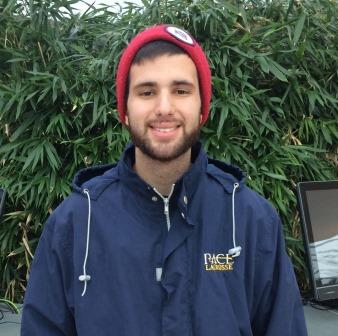
I have private loans and some scholarships that I receive. Mainly, I’ve struggled with keeping up with my bills. The only real struggle right now is my car insurance. It goes up as I get older, as a man. My scholarships cover textbook costs, although sometimes I have to spend extra to get online software. So, I have to pay out of pocket for that — usually like $40.
When I was in community college, my car broke down on my way to school and I had to pay $6,000 out of pocket to get my transmission fixed. It kind of broke me. It just stressed me out all the time because I had to work so hard to afford that while going to school.



I’ve paid for college through a combination of loans, both public and private, tuition assistance, and money out of pocket. The first three years of school I really struggled. I’d been living on my own since I was 17, and had little to no help with bills and regular living expenses. Starting college made everything 100 times harder. My father has substance abuse problems and been in and out of rehab for the past ten years so although he makes money on paper, my family doesn’t see any of it. Because of this, I couldn’t qualify for TAP. I work part time throughout the year and full time over the summers, and I put every penny towards paying for off campus housing.
I paid for tuition, books, transportation, and food with loans that I took out. In the past, I’ve even had to take out private loans, because financial aid alone didn’t cover my needs. In the last year however, my mother was finally able to claim me on her taxes, so I got the tuition assistance that I really needed all along. Even though my aid doesn’t cover everything, it is such a big help to not to pay for everything out of pocket and through loans. I can finally focus on my coursework and extracurricular activities. I could only imagine how different college would have been for me if I had had this assistance throughout.


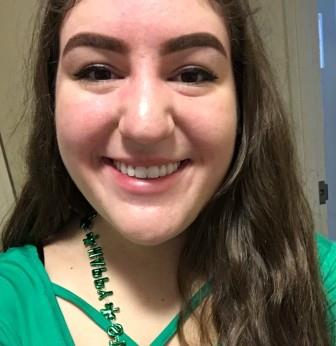
For this year, my family and I paid about $1,684 out of pocket and the rest was covered by loans which are about $20,000-$21,000 for the 2016-2017 school year. I haven’t gotten much financial aid so I’ve had to take out private loans to cover the rest. My parents cover the cost of textbooks and my grandpa sends me $100 each month to help with transit and food. After I graduate I’ll probably be in debt for many years, sadly.
I don’t have a job because I wanted to adjust to college for my freshman year. But some people have to balance a job and classes. I feel sorry for their mental health because they seem to struggle at times. Getting a college degree, to me, is such a huge accomplishment. I think it’s important to be able to further your education beyond high school. I’m currently undecided, but I’m looking forward to finding a major that fits me perfectly and having a career that I’ll enjoy. The financial burden of college is constantly on my mind. It’s going to be a huge financial burden for me for years and years, and with an uncertain job market in the future, who knows what will happen.


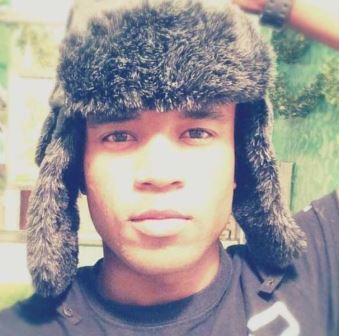
College is costly to me. I pay through loans and out of my pocket. The cost makes it definitely hard to enjoy college since I need the help of loans to pay for it. I work about 15 hours a week throughout the school year in an attempt to lower the cost of college. I’m the first from my family to get a degree. I am from a Caribbean island, and there, it’s a big deal to get a degree. I’m studying nutrition and exercise sciences at the moment but not sure what’s in store after college. I try not to think about the stress that paying for college and maintaining my grades puts on me. If I do, it makes me very sad and even frustrated with the way the system works here in America. Financial aid has been a huge help, even though it never covers everything (academic, housing, books, meals).



I mainly pay for college through loans and I have a grant through the Educational Opportunity Program (EOP). I’ll eventually be struggling to pay back my loans in the future. I always avoid buying textbooks.
I’ve also worked part-time on campus and those jobs haven’t interfered with my studies. I’ve been able to do my homework at those jobs. I wouldn’t be able to go to college without EOP. EOP grants don’t just help you out with money. They help you with actually getting into college, too. It has its own orientation, pretty much. So, they’re the ones that have accepted me, not necessarily the school.



I went off to college immediately after high-school and I did not have any idea of what I was getting myself into financially. In the first weeks of my first semester I found out that I had to take out loans because I didn’t have enough with my scholarship money, Tuition Assistance Program (TAP) award, and Pell Grant. I also needed money to pay for my books. A worker in the financial aid office told me I had to take out loans in order to pay my bill. I had already moved away from home, settled into the dorms and attended a few classes before I even found out that I didn’t have enough to pay for it. I kind of felt like it was a trap.
And I still had other expenses to pay. I spend most of my extra money on food because the on campus meal plan (financial aid covers this food option) doesn’t have healthy options. There are hardly any vegetarian options and since I’m a vegetarian I am always forced to find food at outside food stores. In order to pay for this, I work every school break there is, summer break, winter break, and even spring break. For me, finding affordable, healthy food adds more stress and anxiety than having to take a mid-term or a final exam.
My undergraduate days are coming to an end and I’m filled with anxiety because I’m already $30,000 in debt. It is estimated that I could pay that off in 10 years, meanwhile, it only took 4 years to obtain. I don’t think getting accepted into graduate school would be a problem because my grades are really good. However, paying for the GRE test, application fees and the cost to attend has lead me to pause. The price of one application fee is enough to buy food for 2 weeks and the cost of the GRE exam is enough to buy me food for an entire month! Sometimes I feel that eventually I will have to sacrifice my nutritional health in order to afford an education.


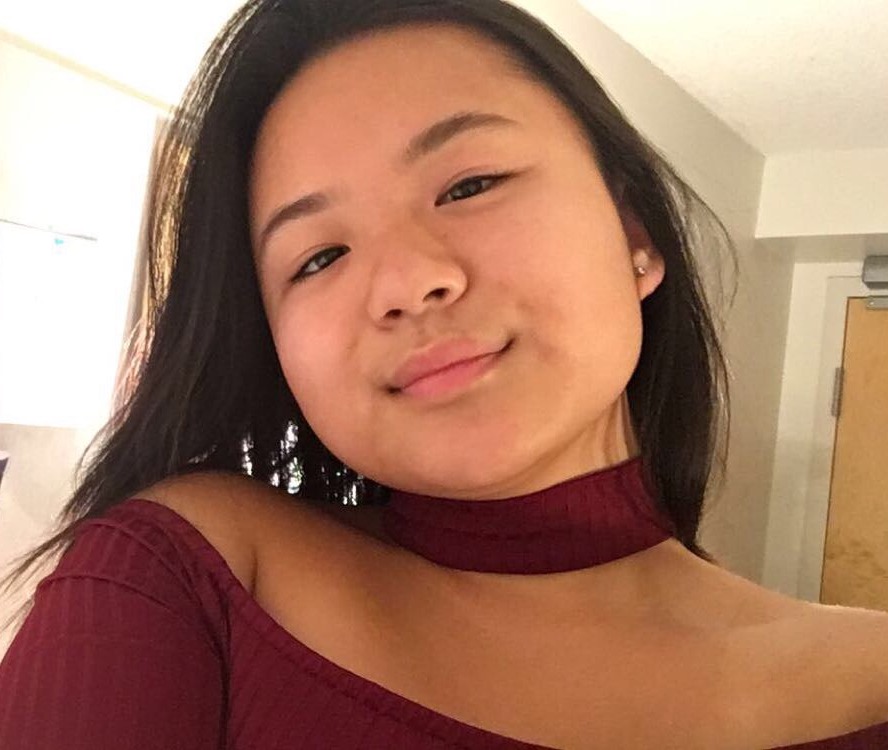
About 98% of my tuition is covered by scholarships, grants from the school, and federal loans and grants. To most other students attending Syracuse, paying the remainder 2% of the school’s tuition would be easy to cover by their parent’s incomes. However, for me it is difficult and extremely stressful, especially since both my parents’ incomes fall below the poverty line, they speak little English and I am a first generation college student. Knowing this, I could not bear to ask for my parents’ helps in paying for my education, and decided to save up whatever money I made from my job as a cashier during high school. Still though, as life is filled with unforeseen circumstances, a lot of the money I made during high school went towards helping my parents. I have to constantly be in communication with the financial aid office and bursar office to settle my dues.
Like many other low-income students here, I’ve had to take on a job on top of classes in order to pay for books, and to save up for next semester’s tuition. Having to constantly be in contact with the financial aid and bursar office, keeping track of my finances, and working on top of taking classes has definitely taught me how to manage my time and money well, but has also burdened me with a great amount of stress. Attending a private institution such as Syracuse for low-income students is an omnipresent issue in regards to finances. However, I am extremely grateful to attend such a prestigious academy.










